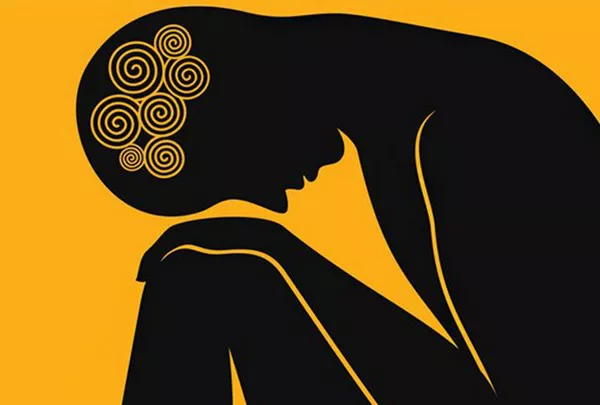New research has brought to light a worrisome connection between long COVID-19 and mental health, emphasizing the necessity for comprehensive care for individuals grappling with enduring symptoms. As experts delve deeper into this issue, the repercussions for both individuals and the healthcare system are becoming increasingly apparent.
Well before the onset of the COVID-19 pandemic, researchers understood that individuals with chronic health conditions, such as heart disease, faced an elevated risk of developing depression. Now, emerging evidence suggests that individuals experiencing long COVID symptoms may confront a similar risk.
According to the most recent survey data from the U.S. Census Bureau, approximately 28% of U.S. adults, at some point following acute COVID-19 infection, reported enduring symptoms associated with long COVID. This term encompasses an array of symptoms that persist beyond the initial illness, affecting individuals differently. These lingering symptoms encompass fatigue, cognitive difficulties, dizziness, gastrointestinal issues, palpitations, sexual health challenges, changes in smell or taste perception, thirst, chronic cough, chest pain, muscle spasms, and symptom exacerbation following physical or mental exertion.
Notably, long COVID appears to be more prevalent among older individuals, women, those who were hospitalized, and those who remain unvaccinated.
The Mental Health Implications of Long COVID
In June, the U.S. Department of Health and Human Services issued a stark warning about the potentially “devastating impact” of long COVID on the mental health of those affected and their families. This impact results from a combination of factors, including the disease itself, social isolation, economic uncertainty, caregiver fatigue, and grief. It has been associated with conditions such as fatigue, sleep disturbances, depression, anxiety disorders, cognitive impairment, and post-traumatic stress disorder.
Dr. Jordan Anderson, a psychiatrist and Assistant Professor at the Oregon Health and Science University, underscores that depression ranks among the most prevalent symptoms observed in long COVID patients. However, diagnosing depression in these individuals requires a nuanced approach. Common symptoms typically linked to depression, such as sleep disruptions, fatigue, changes in appetite, and altered attention spans, are also frequently related to long COVID.
Dr. Anderson stresses that these symptoms alone “may not accurately reflect the severity of someone’s depression.” Instead, he looks for signs such as a loss of interest in previously enjoyed activities, an inability to experience pleasure, and inquires about feelings of hopelessness or suicidal thoughts.
Dr. Anna Dickman, Clinical Director of Psychiatry and Associate Professor of Clinical Psychiatry at New York-Presbyterian Hospital/Weill Cornell Medicine, notes that rates of depression and anxiety disorders among long COVID patients appear to be on par with individuals facing other chronic diseases.
Addressing Mental Health Challenges in Long COVID Patients
Dr. Anderson reveals that approximately half of his long COVID patients report experiencing suicidal thoughts. He underscores the importance of asking specific questions, such as whether these thoughts emerged after the COVID infection or were pre-existing.
The reasons for such a high incidence of suicidal thoughts can be multifaceted. On one hand, it’s reasonable to assume that living with a chronic illness that significantly impairs one’s abilities, often for an extended period, and potentially experiencing stigmatization from family and others can lead to despair. This is the most common explanation he hears from patients.
However, some studies suggest that the virus itself may directly affect the brain, raising questions about whether it could impact the brain regions responsible for emotions. “We don’t have answers to this,” says Dr. Anderson.
Stressors linked to social determinants of health, including discrimination, lower income, limited access to healthcare, and other resources, may also contribute to a higher incidence of depression, according to Dr. Dickman. She highlights that overall increased stress and reduced social support can detrimentally affect mental health.
As of now, there is no standardized treatment approach for mental health issues linked to long COVID. Treatment may vary depending on individual symptoms and can include a combination of medication and psychotherapy, or a combination of both. Group therapy can also provide valuable support by connecting individuals with similar experiences.
Dr. Dickman suggests that in addition to medication and psychotherapy, useful techniques for managing anxiety include meditation, relaxation, and breathing exercises, along with graded physical activities tailored to an individual’s capabilities. She advises, “Exercise in a tolerable and gradual manner.”
As researchers delve deeper into the complexities of long COVID and its impact on mental health, there is a growing recognition of the need for comprehensive and personalized care for those contending with persistent symptoms. Understanding these challenges and providing support is paramount to assisting individuals affected by the enduring consequences of COVID-19.


